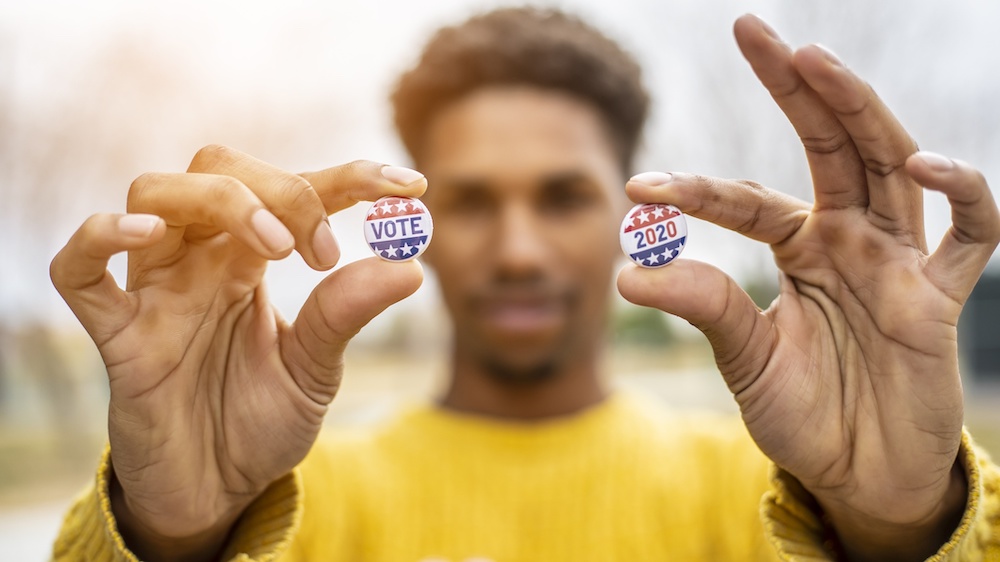If you’re interested in sharing your opinion on any cultural, political or personal topic, create an account here and check out our how-to post to learn more.
____
The first time I learned that I was different was in seventh grade. My cheerleading coach retired and we all re-auditioned to stay on the team for the new coach. I was the only person who wasn’t invited to re-join the team. I was also the only Black girl on the team.
I was devastated. My parents, on the other hand, were ready. They went straight to the school and filed a complaint. The school asked the coach why I didn’t make the team, and the coach couldn’t give one good reason. Not one. The principal vetoed the coach’s decision, and I was reinstated onto the team. I also got the talk from my parents, about how we were different from our otherwise very white town in the Pacific Northwest and what that meant for our futures.
Advocacy, it turns out, runs in my family. There’s a school named after my grandma in Pasco, Washington: Virgie Robinson Elementary School. I lived in Pasco for seven years and once people found out that I’m Virgie’s granddaughter, they would tell me how my grandma, a teacher, had influenced their lives. They’d tell me that because of my grandma, they passed a certain class. Because of my grandma, they were able to graduate from high school. Like my parents spoke up for me, she spoke up for so many people in my community. And now it’s my turn to speak up.
As a radio host, I speak a lot. It’s my job, after all. But speaking and speaking up are different things. This year, I’m speaking and I’m speaking out — both through my radio show and MoveOn’s Your Vote Is Power campaign. Because after I saw the murder of George Floyd on national television, I knew I had to do something. I knew that I wanted to do more than vote. So I used my platform, my radio show, to start a series of conversations with local candidates running for office.
The focus of these conversations is always on education, so that anyone who tunes in can decide for themselves which candidate they like best. We’ve held six conversations so far with local candidates, and our last one will be on October 29, right before the election.
My one rule is this: No one tuning in should ever feel bad for not knowing something about voting. They should never feel ridiculed for trying to learn. I am, after all, a descendant of teachers. The goal is to inform and educate without judgement. And so far, it’s working.
I had a listener reach out to me to say she voted for the first time in the primaries in August because of my show. She could have voted before, but simply didn’t understand what her options were and didn’t feel like she could make an informed decision.
Voting has a learning curve. I was lucky that my parents started my civic education early, but there are still things I’m learning every day. One example? The power of voting in local elections. Because even though national politics dominates the news, local politics often wields a much bigger influence over our lives. I recently stepped down from my full-time position to focus on my coaching business, but I knew I’d still have health care coverage because Washington state has a good health care program. That’s a local decision that affected my life in a huge way. To me, choosing your county commissioners, your sheriffs and your state legislators is just as important as who you’re choosing for president.
So when people ask me why I’m voting, or why I’m so passionate about making sure everyone around me knows their vote is powerful, my answer is simple: It’s because I care. I care about John Lewis, and George Floyd, and my grandparents. I care about Black Lives Matter — and our lives definitely matter. I care about the kids who go to the elementary school bearing my grandma’s name. I care about my community.
And that’s why I vote and help make it easier for people in my town to make their own informed decisions. Because I care the way my grandmother cared about the Black and brown kids in this community. Because I care the way my parents cared for me and spoke up for me. Because I care about my community, I vote.
____
People like Reka Robinson are committed to ensuring that injustice is no longer the norm. We must elect officials who won’t stall and who won’t put the lives and livelihoods of millions in danger. Make sure you are registered to vote. Make sure you know how to vote by mail. And make sure you mobilize others to vote as well. Together, we’ll create a better tomorrow.

